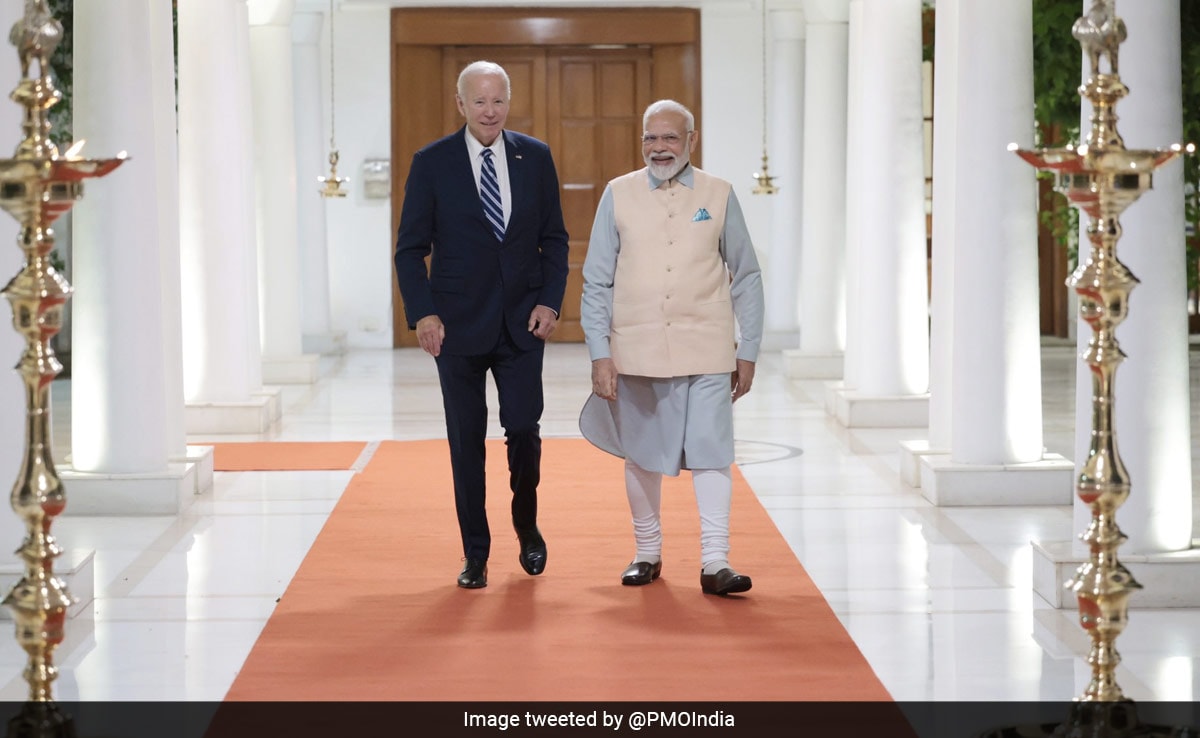US President Joe Biden has commended Prime Minister Narendra Modi for his “message of peace” and “humanitarian support” for Ukraine, as they discussed his historic visit to Kyiv and the prospects for the early return of peace through dialogue and diplomacy.
The phone conversation between Biden and Modi on Monday, initiated by the US president, came three days after Modi paid a high-profile visit to Kyiv during which he told President Zelenskyy that Ukraine and Russia should sit together to end the war and that India was ready to play an “active role” to restore peace.
In a post on ‘X’, Joe Biden said, “I spoke with Prime Minister Modi to discuss his recent trip to Poland and Ukraine, and commended him for his message of peace and ongoing humanitarian support for Ukraine.” “We also affirmed our commitment to working together to contribute to peace and prosperity in the Indo-Pacific,” Biden said.
I spoke with Prime Minister Modi to discuss his recent trip to Poland and Ukraine, and commended him for his message of peace and ongoing humanitarian support for Ukraine.
We also affirmed our commitment to work together to contribute to peace and prosperity in the Indo-Pacific.
— President Biden (@POTUS) August 26, 2024
This was the first call between the two leaders after PM Modi’s trip to Russia, Poland and Ukraine and the recent political developments in Bangladesh.
The White House readout of the call had no reference to Bangladesh, which was mentioned in an ‘X’ post by Prime Minister Modi.
PM Modi’s nearly nine-hour visit to Ukraine, the first by an Indian prime minister since its independence in 1991, came six weeks after he held summit talks with Russian President Vladimir Putin that triggered anguish in some Western capitals.
The White House, in a readout of the call, said the two leaders discussed Modi’s recent trip to Poland and Ukraine, as well as the United Nations General Assembly meetings in September.
“The President commended the prime minister for his historic visits to Poland and Ukraine, the first by an Indian prime minister in decades, and for his message of peace and ongoing humanitarian support for Ukraine, including its energy sector,” it said.
Biden and PM Modi affirmed their continued support for a peaceful resolution of the conflict under international law, based on the UN Charter.
“The leaders also emphasised their continued commitment to work together, including through regional groups like the Quad, to contribute to peace and prosperity in the Indo-Pacific,” the White House said.
Meanwhile. commenting on Biden’s telephonic conversation with Modi, White House National Security Communications Advisor John Kirby said, “I think it’s safe to say they certainly talked about Ukraine and the Prime Minister’s trip to Kyiv and the prospects for moving forward under President Zelenskyy’s plan for a just peace.
“We welcome any other country that wants to help President Zelenskyy work towards this just peace,” he said.
“And any country that’s willing to come at that discussion by starting with President Zelenskyy’s perspective, by hearing him out, by signing on to that proposal – and I won’t speak for India and what they’re signing on to or not; that’s for the Prime Minister and his team to talk to,” he said.
Mr Kirby said the US certainly welcomes any nation that is willing to be helpful and to start that conversation by ascribing to President Zelenskyy’s just peace proposal and getting his perspectives.
Earlier, in a post on X, PM Modi said that during the call with Biden, they had a detailed exchange of views on various regional and global issues, including the situation in Ukraine.
“I reiterated India’s full support for early return of peace and stability,” the prime minister said.
Moreover, PM Modi said that he and Biden also discussed the ongoing situation in Bangladesh and stressed the need for the early restoration of normalcy and ensuring the safety and security of minorities, especially Hindus.
Following the unfolding political developments in Bangladesh, India has been consistently pressing to ensure the safety and security of minorities, especially Hindus, in the neighbouring country.














